You are here
Voip Phones
Fanvil V61G – Basic 4-line Phone
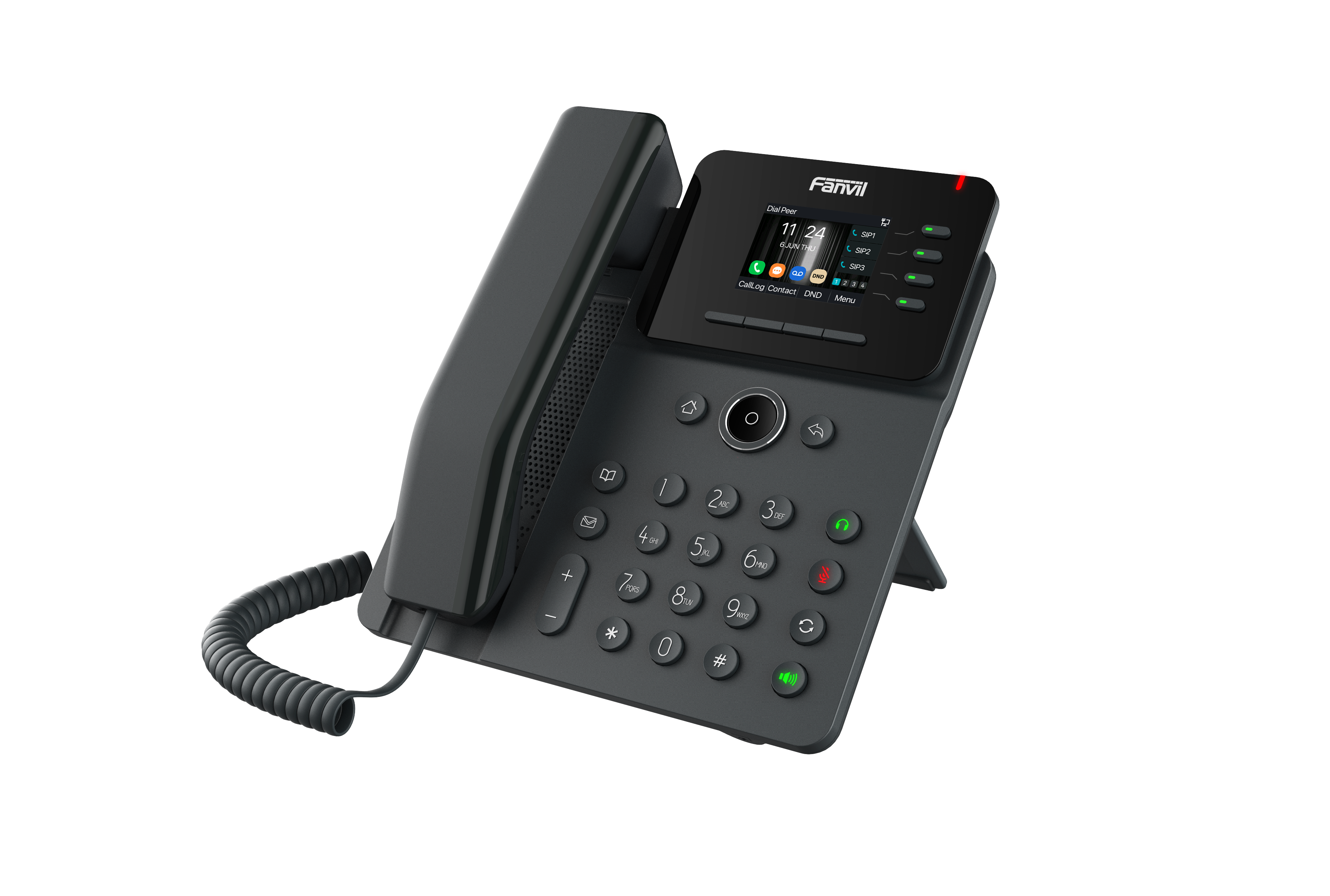
The Fanvil V61G is a sleek and reliable entry-level IP phone designed for everyday business use. With support for 4 SIP lines, a vibrant 2.4" color screen, and HD audio powered by the Opus codec, it delivers clear, professional communication. Features include PoE, dual Gigabit ports, 12 programmable DSS keys—making it ideal for growing teams.
Fanvil X3U Pro
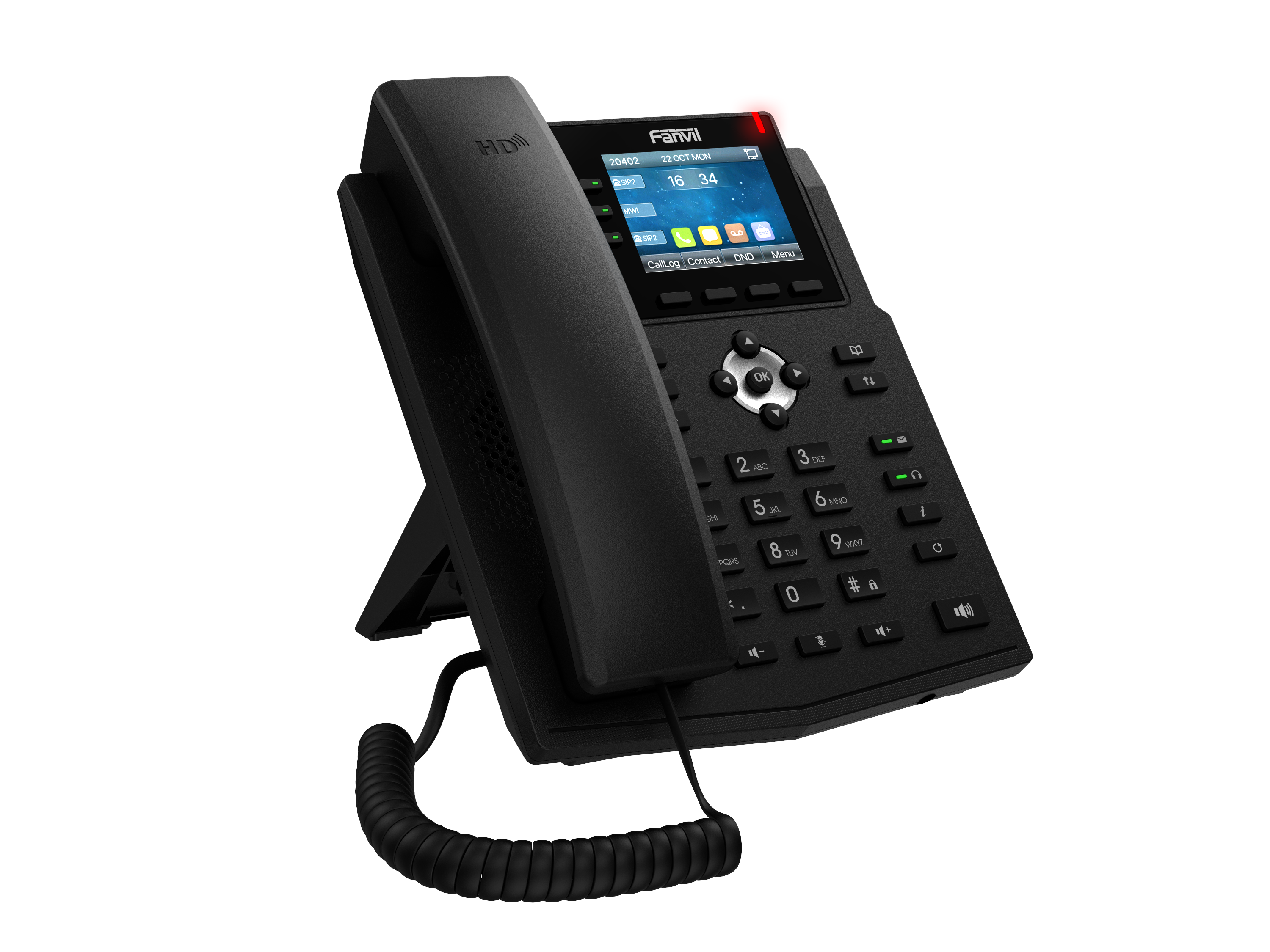
The Fanvil X3U Pro is a modern, easy-to-use business phone designed for clear, reliable calls. It supports 3 lines, features a bright 2.8" color screen, and delivers HD audio with a Harman speaker and Opus codec for crystal-clear sound. With Power over Ethernet (PoE), headset support, and 6-way conferencing, it’s a perfect fit for busy offices that need great quality at an affordable price.
Fanvil X4U – Executive
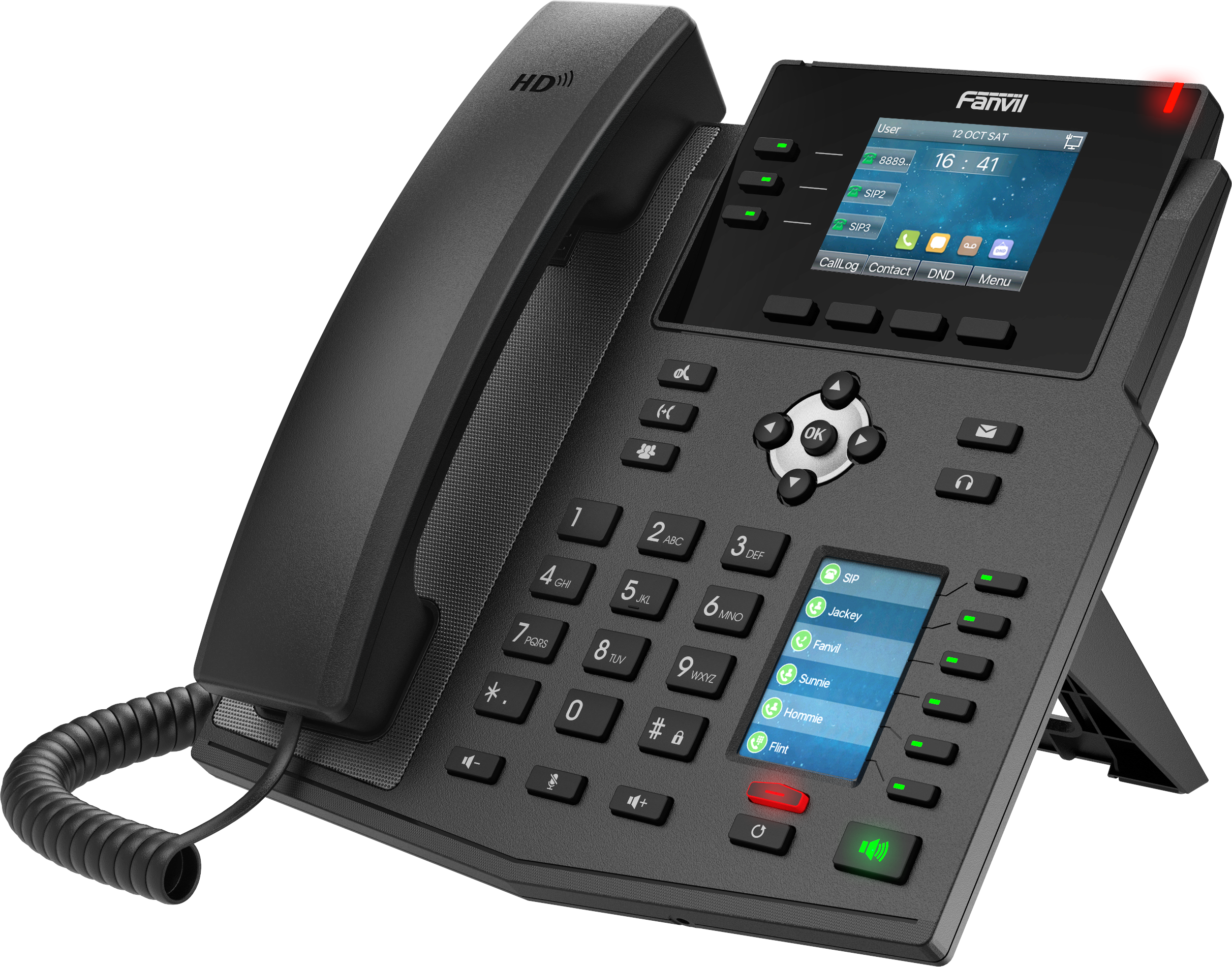
The Fanvil X4U-V2 is a feature-rich, mid-level VoIP phone built for busy professionals and front desk staff. With support for 12 SIP lines, HD audio (powered by Harman speakers and Opus codec), and dual color displays, it delivers a smooth and clear communication experience. The phone includes PoE, EHS headset support, and Bluetooth/WiFi compatibility via dongles. With 30 programmable DSS keys and dual Gigabit ports, it's a powerful tool for efficient call handling in any modern office.
Fanvil X6U – Receptionist
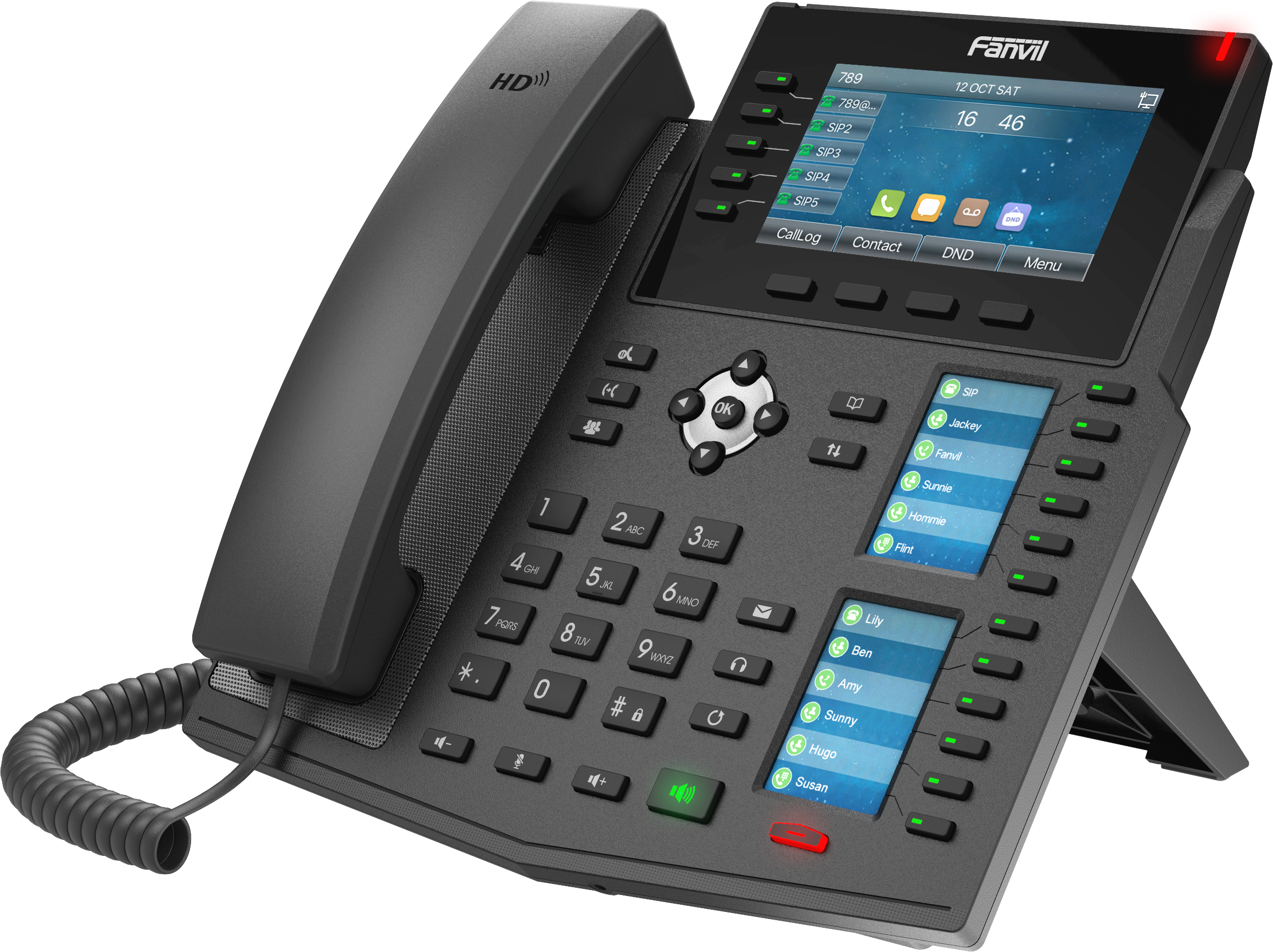
The Fanvil X6U-V2 is a high-performance executive-level IP phone designed for professionals who handle high call volumes. With 20 SIP lines, HD audio (featuring Harman speakers and Opus codec), and three vibrant color screens, it offers an intuitive and powerful calling experience. Enjoy built-in Bluetooth, PoE, dual Gigabit ports, and 60 programmable DSS keys—perfect for executives, receptionists, and advanced users. Wi-Fi and EHS headset support ensure seamless connectivity.
Fanvil-Linkvil W610W – Portable WiFi Phone
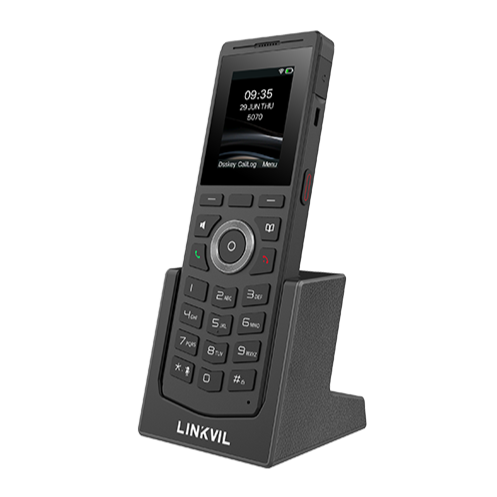
Stay connected anywhere with the W610W, a compact WiFi phone featuring dual-band 2.4GHz/5GHz, Bluetooth 5.0, and HD audio with G.722/Opus codecs. With a 9-hour talk time, 3.5mm headset jack, vibration alert, and PTT key, it's ideal for mobile workers in retail, healthcare, hospitality, and more. Comes with charging base, belt clip, and Type-C USB power support.
Yealink W76P – DECT Phone. Cordless.
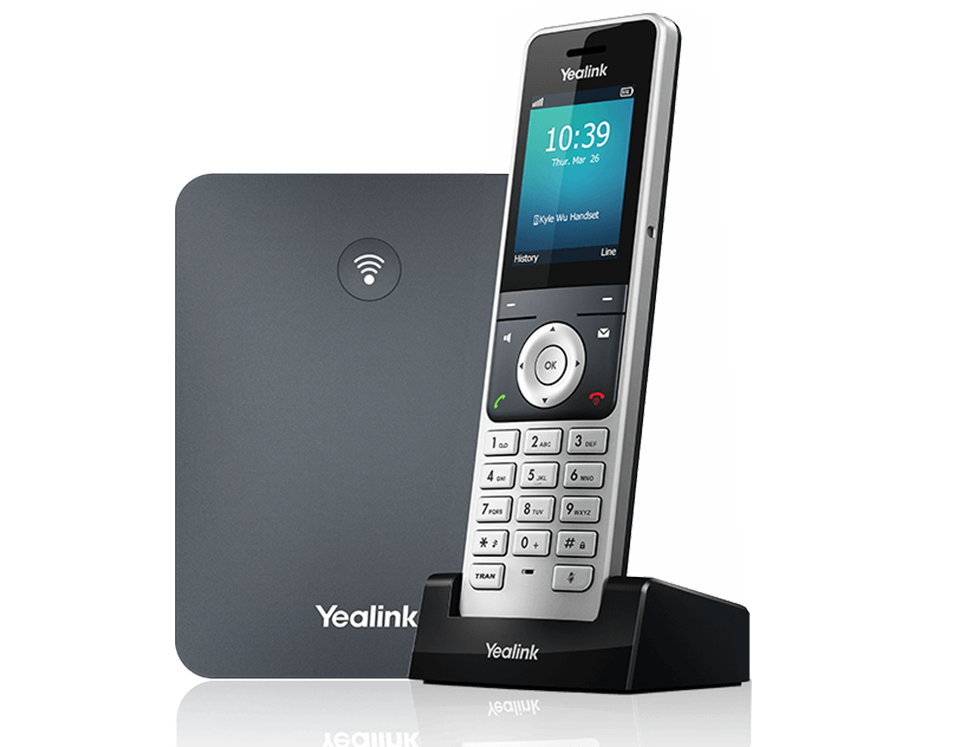
The Yealink W76P is a flexible and reliable DECT SIP phone system built for businesses that demand mobility, scalability, and crystal-clear communication. It supports up to 10 handsets and 20 simultaneous calls, with features like a 2.4" color display, Opus codec, noise reduction, and TLS/SRTP encryption for secure, high-quality audio. With up to 30 hours of talk time, quick charging, and 3.5mm headset support, it’s ideal for fast-paced work environments. Wall-mountable for added convenience.
Yealink CP925 – Conference Room Phone
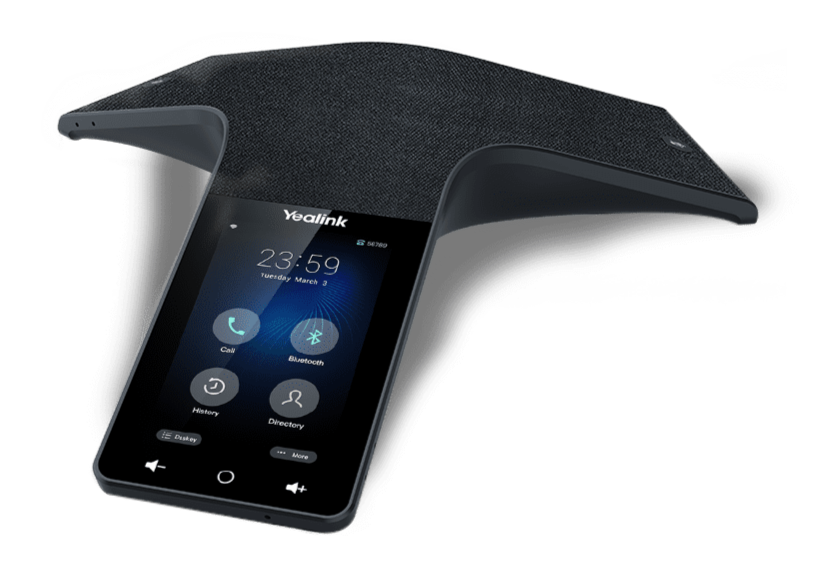
The Yealink CP925 is a smart, user-friendly HD conference phone designed for small to medium-sized rooms. It features a 4" touchscreen, 7 built-in microphones with 360° voice pickup, and Noise Proof Technology for clear, professional calls. With Bluetooth, dual-band Wi-Fi, and 5-way conferencing, it’s ideal for hybrid meetings. Built to handle real-world use with spill-resistant fabric and Power over Ethernet (PoE) support.
Monmouth Telecom
Founded as an Internet Service Provider in NJ in 1995, Monmouth Telecom has grown to offer a complete set of innovative and economical Business VoIP Phone Services and Business Internet Services. We were NJ's first Internet Service Provider turned Telephone Company in 2000 and in 2006 we began providing businesses with increased functionality using VoIP. Learn more about Who We Are and how Hosted PBX / Virtual PBX is changing the face of business telephone service.
Contact Us
Receive a Free Consultation
877-MONMOUTH
877-666-6688
sales@monmouth.com
Customer Service
732-704-1000
contracts@monmouth.com
Technical Support
Network Operations: 732-704-9000
HPBX Support: 732-704-9950
noc@monmouth.com
hpbx-support@monmouth.com
Locations
Headquarters
Monmouth Telecom
1 Industrial Way West
Bldg D Ste A
Eatontown, NJ 07724
Key Data/Switching Facilities
12 N 7th St.
Camden, NJ 08102
165 Halsey St.
Newark, NJ 07102
423 Washington Ave.
Pleasantville, NJ 08232
18 Paterson St.
New Brunswick, NJ 08901
95 William St.
Newark, NJ 07102
Learn More
Customer Testimonials
Data Services
Business Internet Service
Private Data Networks
Fiber Internet
Network Cabling
Business VoIP Phone Service
Business Phone System
Disadvantages of PBX
Virtual PBX / Hosted PBX
Office VoIP Phones
Features
FAQ
Cisco Vs Polycom
DECT Vs WIFI
CRM Integration
Call Queue Statistics
Click To Dial
Technology Partners
Legacy Telephone Line Terms
Theme by Danetsoft and Danang Probo Sayekti inspired by Maksimer











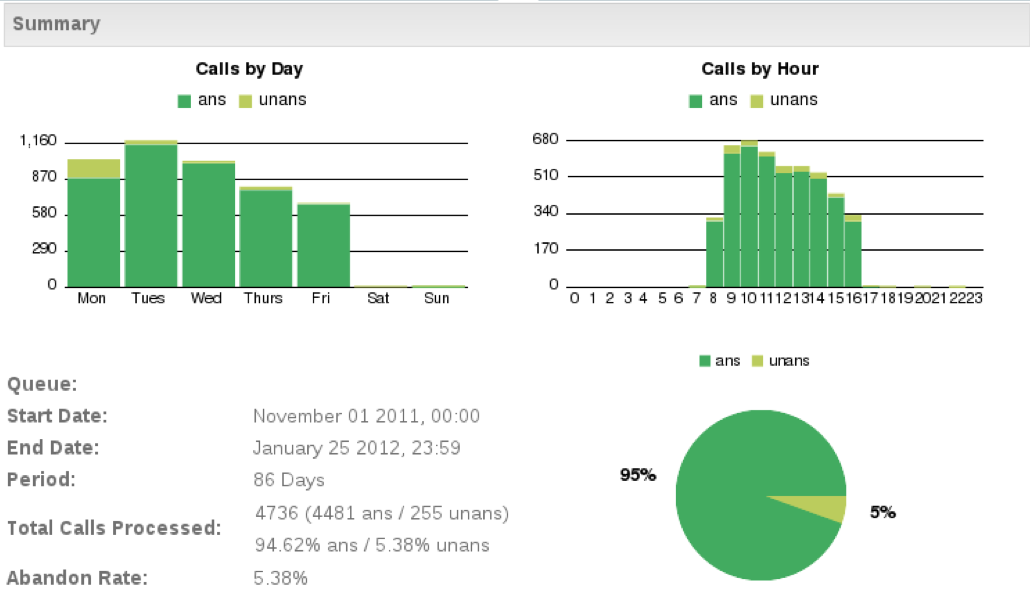
 All staff located in NJ USA. No overseas outsourcing.
All staff located in NJ USA. No overseas outsourcing.